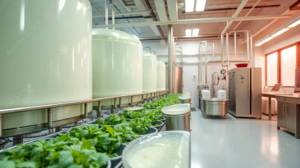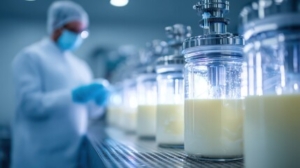
EC launches EU Biotech and Biomanufacturing Hub
One day after presenting its competition strategy, the EU Commission has launched an EU Biotech and Biomanufacturing Hub. The collection of information is intended to help biotech start-ups navigate through the jungle of EU funding measures and provide access to networks that help with patenting, product authorisation and compliance with EU regulations.
A first symbolic act to create a spirit of optimism in the European biotech sector was performed at the end of January by Stéphane Séjourne, Executive Vice-President for Prosperity and Industrial Strategy of the European Commission. “Biotechnology is the key to industrial innovation and resource-saving productivity increases, ”, said the 39-year-old dynamic liberal implementer of the new industrial strategy of the European Commission, at the launch of the EU Biotech and Biomanufacturing Hub, which has the goal to speed up technology transfer of biotech companies.
What sounds like a lot of money and scaling is, so far, just a collection of information intended to help Europe’s biotech start-ups to bring their products to market as quickly as possible. For this purpuse, the hub provides information about existing EU funding resources, R&D and IP support networks and clusters, scaling infrastructures and regulatory affairs support.
The EU Biohub was announced as part of the ‘Boosting Biotechnology and Biomanufacturing in the EU’ strategy presented by former Competition Commissioner Margrethe Vestager in March 2024. With this strategy, the EU Commission commissioned a study to analyse Europe’s position in terms of synbio and bio-based bioeconomy in comparison to the USA, the UK, and China. The strategy also envisages providing SMEs in the growth phase with funding tranches of €10-30m via the cross-sector EIC Accererator that has a budget of €1.4bn in 2025, that is funding support for 70 start-ups.
The EU Biotech Act envisaged in the strategy is to be presented in the second quarter of 2025. An update of the EU Bioeconomy Stratety is set to follow one year later. However, according to insiders, it will not be as comprehensive as similar Acts in the USA and the UK, which have pledged investment in the scaling up of biotechnological production processes, particularly in industrial biotechnology. Instead, improvements such as a simplification of the authorisation of clinical studies, the supply of raw materials for essential active ingredients and the simplification of authorisation for medical products can be expected in the short term.
With regard to planned investments into industrial biotechnology/bioeconomy, the EU appears undecided about reclaiming its former leading position in the bioeconomy, i.e. in the implementation of the biologisation of industry. Although it has long been clear that agricultural waste streams are not produced in sufficient quantities to replace fossil raw materials for the chemical industry, there is no sign that the Commission intends to scale up the biotechnological carbon capture processes developed in Europe to produce climate-neutral base chemicals, fuels and food.


 EC- press service
EC- press service adobe.stock.com - Cathy
adobe.stock.com - Cathy adobe stock photo - Blackmint Studio
adobe stock photo - Blackmint Studio